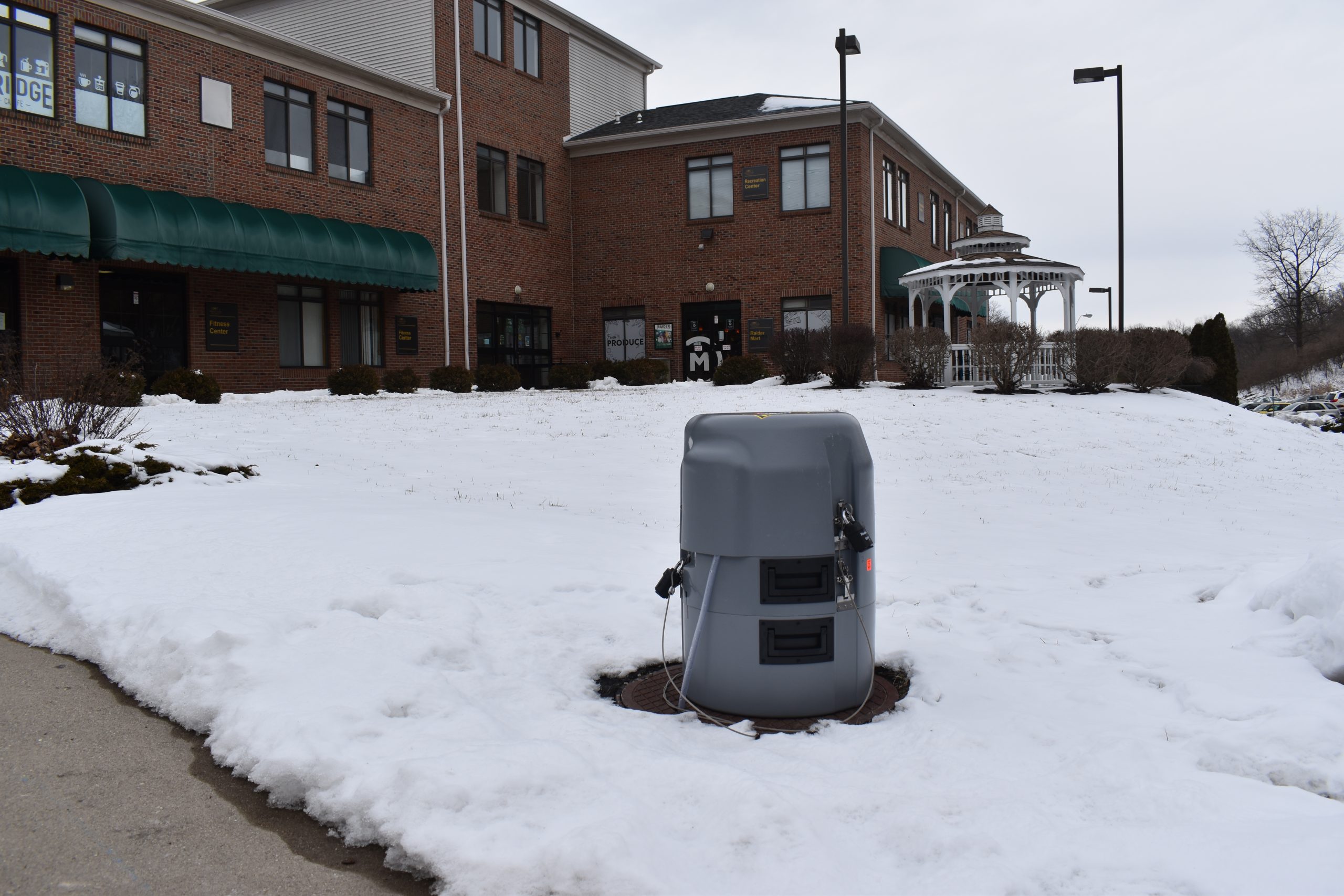
Waste scanner | Photo by Grace Ramsdell | The Wright State Guardian
In recent weeks, Wright State University (WSU) alerted students to five devices that were placed on campus that serve the purpose of detecting traces of the coronavirus in water waste within residential areas on campus.
Why water waste is being tested
The Centers for Disease Control (CDC) and the federal government have partnered up to develop a way to test “water waste”, more commonly known as sewage water, for traces of the virus that causes coronavirus.
“Sewage testing over time can provide trend data that can complement other surveillance data that informs public health decision making. However, at this time, it is not possible to reliably and accurately predict the number of infected individuals in a community based on sewage testing,” said the CDC on their website at the end of 2020.
This is not the first time water waste has been used to detect an illness within households and buildings in the United States.
“Sewer water testing has been used in the past for detection of diseases such as polio,” said the CDC.
Both asymptomatic and symptomatic coronavirus patients can have traces of SARS-COV-2 in their fecal matter, and with the majority of American bathrooms being linked to municipal sewage collection systems, the United States is repeating history by utilizing the bathroom to end the fight against a disease.
Water waste surveillance at WSU
The project began at WSU in November of 2020, with five autosampler devices being placed throughout the residential portion of campus, including one on Lake Campus.
“The autosamplers use a peristaltic pump to collect the wastewater from a sewer line into a hose to plastic sample container that is securely enclosed in an insulated study collection vessel,” said WSU Director of Environmental Health and Safety Marjorie Markopoulos.
WSU was one of fifteen colleges throughout the state to receive a grant and partake in the water waste testing program. Students at WSU are also able to help in the research efforts, as the WSU Biological Sciences and Environmental Health and Safety departments play a big role in the project.
“We are doing this [project] as a way of guarding against outbreaks,” said Assistant Research Professor Abimbola Ola Kolawole in a recent WSU Newsroom interview. “[Students] are very excited to go out and collect samples themselves.”
The water waste testing is expected to go on for at least the next six months, as that is how long the grant WSU received is estimated to last.
“Please do not disturb this delicate equipment so it can help continue our successful efforts to reduce COVID on campus,” said Community Director Ryan Winget in a public message to students.
